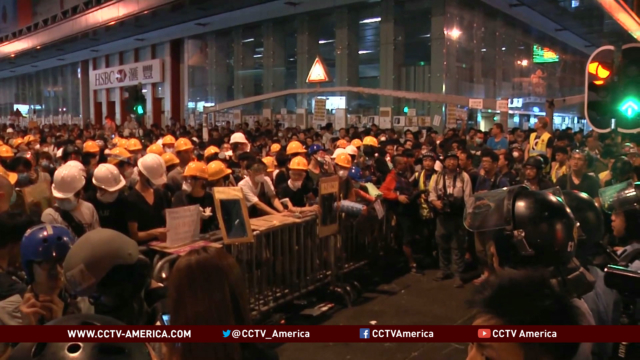The first talks between Hong Kong’s government and student protest organizers are set to take place on Tuesday. The city’s residents have already divided over what to expect. Some say this is a good start, while others are more pessimistic about whether it can resolve the current deadlock. CCTV America’s Zhu Dan reports.

For the first time since the Occupy Central movement began nearly one month ago, the Hong Kong Special Administrative Region (SAR) government and the student protesters will meet. It will be moderated by the president of Lingnan University, Cheng Kwok-hon. Chen was picked by the city’s eight universities to moderate, and he pledged to remain impartial.
Carrie Lam, the SAR’s chief secretary of administration, will lead the government delegation. Five members of the Hong Kong Federation of Students, one of the main groups behind the occupation, will represent the protesters.
The talks are scheduled to last two hours. According to Lau Nai-keung, a member of the Hong Kong Basic Law Committee from the National People’s Congress Standing Committee, the outcome is not guaranteed. Lau says if the protesters do not accept the Basic Law, the talks will have nowhere to go.
The stakes are high for these talks. Violent clashes increased over the past few days, after police tried to ease traffic congestion in certain areas by removing protester barricades.
Public opinion is also turning against Occupy Central, with local residents saying the protest is not only disrupting their lives, but also illegal. Many say it is no longer a peaceful demonstration. Some protesters have even been found carrying dangerous weapons.
There are still thousands of protesters camped out on the thoroughfares of Hong Kong. Some are positive that the meeting is a good start, while others say the two sides have fundamental differences, and a consensus will be hard to reach.
While opinion is divided and results are uncertain, analysts said that any dialogue is still better than no dialogue at all.
 CGTN America
CGTN America
